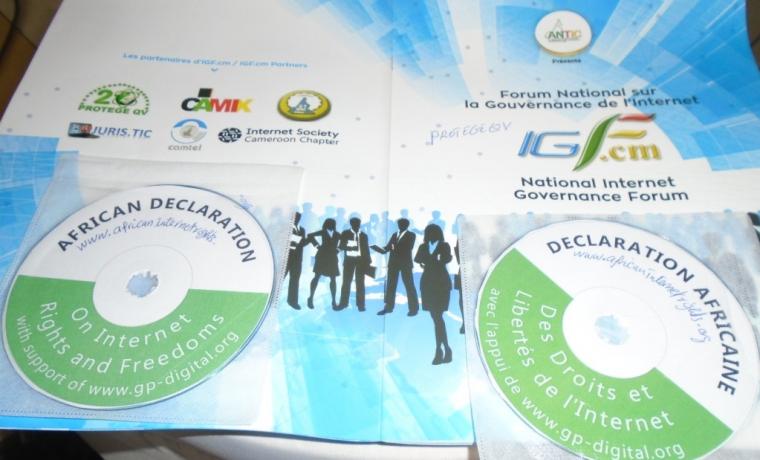NATIONAL INTERNET GOVERNANCE FORUM IN CAMEROON
NATIONAL INTERNET GOVERNANCE FORUM IN CAMEROON

This blog post had been written by Avis Momeni on behalf of PROTEGE QV, reflecting on a session he hosted at the 5th national IGF in Cameroon. The views expressed in this blog represent the views of the author/s only, and do not represent the views of the African Declaration on Internet Rights and Freedoms and its members. If you'd like to contribute a blog how the principles of the African Declaration on Internet Rights and Freedoms has inspired or informed your work, we'd love to hear from you! Please contact us at info [at] africaninternetrights.org
NATIONAL INTERNET GOVERNANCE FORUM IN CAMEROON
Cameroon has organised the 5th edition of the Internet Governance Forum 2017 in the city of Kribi, In the Department Océan in the South Province, under the theme: Internet Governance and Social Networks. Around 300 people attended the forum, a remarkable turnout for this small seaside resort, where there was a strong showing from the local government, as well as the traditional authorities and local citizens. The Forum was formally opened by the sub-prefect of Kribi 1st district, on behalf of the Province. Following the opening, several topics were presented, followed by interactive discussion and debate. Following two presentations that focussed on the duties of users, PROTEGE QV, the organisation I represented, held a public presentation under the theme: Rights and Freedoms of the Internet in the light of the principles of the African Declaration of Rights and Freedoms of the Internet. In contrast to the two previous speakers, this session reassured the audience that the public did not only have duties with regards to the internet, but also rights. The main questions that were raised during the debates were:
- How do the Declaration’s principles link to gender mainstreaming?
- Has the Declaration taken the rights of rural populations into account and their right to access?
- What role or strategy can Kribi’s civil society play in joining Cameroon's wider civil society to encourage the government to ratify the resolution that was adopted in Banjul, The Gambia in November 2016
- How flexible are the Declaration’s principles in light of technological change?
- When revisiting the Declaration, drafters should take future challenges into account, notably the tendency of African governments to shut down the Internet during elections or for political reasons.
During discussions with participants, I noticed that that the public perception strongly focuses on the duties and responsibilities of Internet users, whilst user rights and freedoms were only marginally discussed. To understand the reason for this, we should not forget the colonial system in Africa and especially in Cameroon was at its core a repressive system. The consequences of this repression continue to, unfortunately, be felt among many Cameroonians. This repression continues to perpetuate in different forms in Cameroons current system following the country’s independence, with the result that the rights and freedoms of Internet users receive scant attention. On the prickly question of Internet Shutdowns and network disruptions in Africa: Internet Shutdowns are on the rise in Africa, and Cameroon is no exception, as seen during the network disruptions in December 2016 to April 2017. PROTEGE QV is convinced that this issue can only be addressed through a multi-stakeholder approach, if not - then for political reasons, present and future governments may be inclined to use it easily. PROTEGE QV believes that an approach that focusses on technological solutions, implemented in accordance with human rights standards and adequately safeguarded by the rule of law, would allow regulators to effectively perform their safeguarding role without having to resort to Internet Shutdowns, which undermine the Right to Freedom of Expression and have detrimental consequences for the education system, and social, cultural and economic life. The final report of the forum should be available shortly in the website www.igf.cm.
- PROTEGE QV would like to thank GLOBAL PARTNERS DIGITAL whose support has enabled us to distribute more than 300 engraved CD's of the content of the African Declaration of Internet Rights and Freedoms (www.africaninternetrights.org), who’s Principles and Rights and rights were drafted to empower Cameroon's users to better defend their rights online. Also, the 59th session of the African Commission on Human Rights and Peoples adopted Resolution 362 on 4 November 2016, focussing on the right to Freedom of information and expression on the Internet in Africa
Avis MOMENI PROTEGE QV CAMEROON
